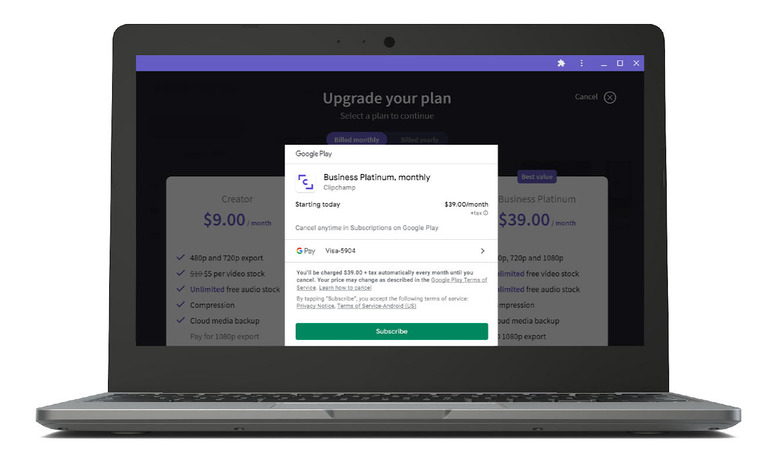Google Play Store PWAs On Chrome OS Will Soon Support In-App Purchases
As a company deeply rooted in the Internet and Internet advertising, it isn't that surprising that Google is heavily pushing web apps, specifically Progressive Web Apps or PWAs. Even on Android where it has native mobile apps, it is still advocating for Web-based experiences that are almost as good as native. There are, however, still some things that PWAs can't do that are almost all too easy for Android apps but Google is slowly but surely bridging that divide, especially when it comes to PWAs running on Chromebooks.
Recent market figures show how Chromebook sales have skyrocketed this year as people scramble to get their hands on one for remote school or work. Chrome OS today is a far cry from the platform's first iterations and now supports apps from Android and Linux, not to mention web-based apps like PWAs. The latter, however, don't have a single, trusted app store, something that Google has been trying to fix through its own Google Play Store.
Last year, Google made it possible for PWA developers to get their apps listed in an app store that's commonly presumed to be for Android apps only. This supposedly makes it easier for Chromebook users to discovering these web apps just by searching and install them with a single click. Once installed from Google Play Store, these PWAs look and behave exactly like any other Chrome OS app, which is entirely the idea behind PWAs in the first place.
Gettings their apps listed on Google Play Store, however, isn't the only benefit to integrating with Google's ecosystem. Formally launching with Chrome OS 89 in March 2021 but available now behind a flag, PWAs from the Google Play Store can also tap into Google Play's billing system. In other words, these web apps will be able to take advantage of a familiar payment system for making in-app purchases, just like native Android apps.

Of course, the price that developers will have to pay is that they will be tying that functionality to Google's Play Services and won't be able to take that to other platforms. Then again, that is exactly how Google plans on wooing developers that want the flexibility of progressive web apps but also the convenience of mobile apps as well.
